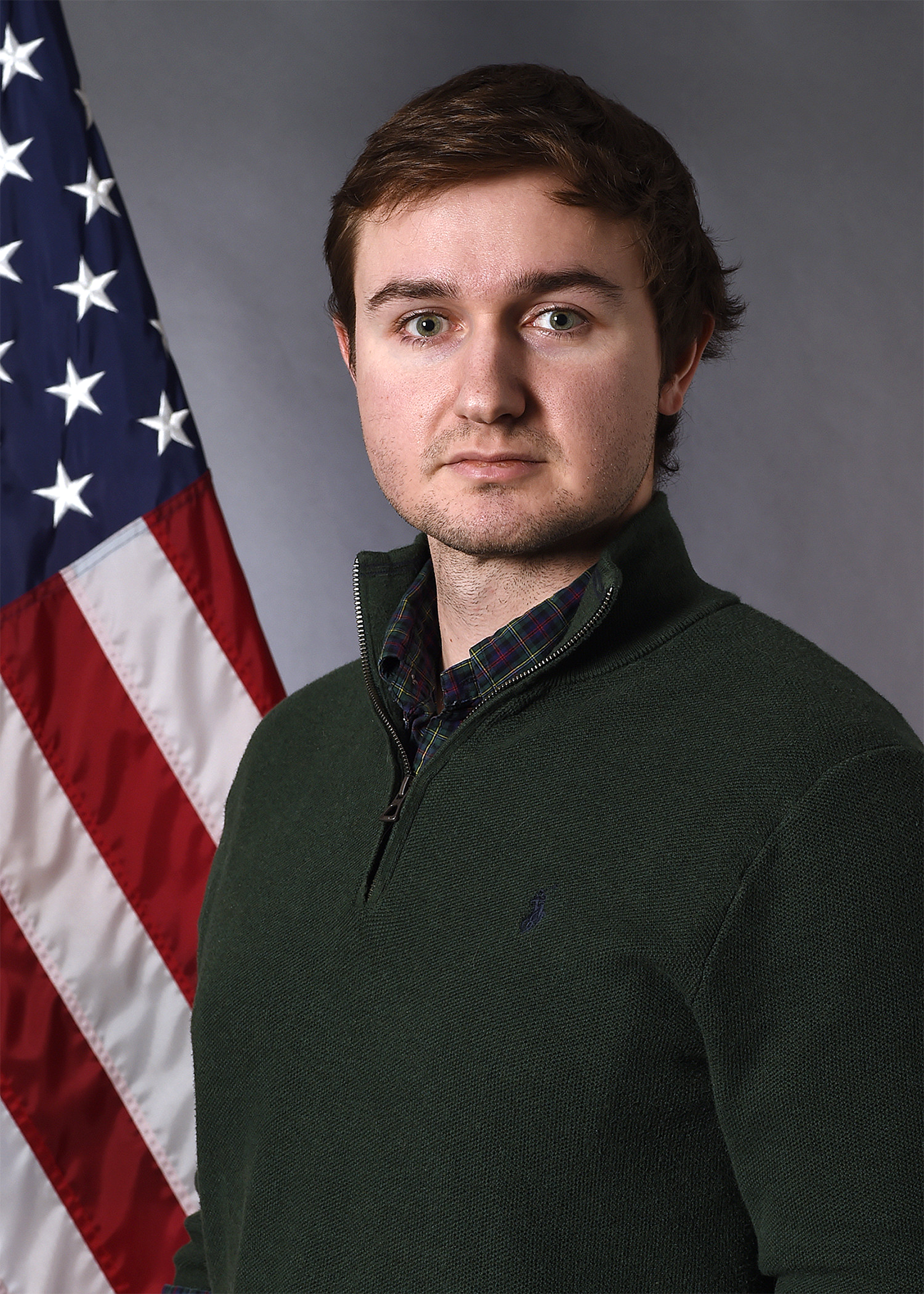AFRL’s Information Directorate receives SMART SEED Grants
Rome, N.Y. (AFRL) — Air Force Research Laboratory, or AFRL, scientists at the Information Directorate received research funding through a Department of Defense, or DOD, Science, Mathematics and Research for Transformation, or SMART, Program grant. Dr. Anthony Rizzo at the AFRL Information Directorate will use the funds to investigate ultra-low energy photonic deep learning and quantum computation on a silicon chip.

Dr. Anthony Rizzo at the Air Force Research Laboratory Information Directorate will use funding through a Department of Defense Science, Mathematics and Research for Transformation Program grant to investigate ultra-low energy photonic deep learning and quantum computation on a silicon chip. (U.S. Air Force photo)
The SMART program awarded 11 SEED Grants this year, totaling 76 since the program began in 2021.
Rizzo commented that these programs help to further research completed by doctoral students as they move toward a career within the DOD research community.
“SEED is a unique opportunity for our Ph.D. scholars to gain vital early career [science and technology, or] S&T project leadership experience while working at the leading edges of the DOD’s critical technology areas,” said Dr. Coit Hendley, SMART deputy program manager. “It is a part of the SMART scholar professional development process, which addresses the 2023 National Defense Science and Technology Strategy of investing in the workforce of tomorrow.”
Rizzo will use the grant funding to fabricate state-of-the-art silicon photonic chips through AIM Photonics, a company that provides state-of-the-art integrated photonics fabrication, packaging and testing facilities and services to industry, academia and the U.S. government.
“This research aims to take the powerful capabilities of quantum information, including intrinsically secure communication guaranteed by the laws of physics and exponentially more powerful computation, and miniaturize them to the chip-scale,” Rizzo said.
The chips Rizzo will work with use single particles of light, or photons, to encode, compute, transmit and receive quantum information. Rizzo said the chips will be fabricated using the same infrastructure used to fabricate microelectronics chips such as those found in standard cell phones and laptops, providing a straightforward path to volume production and reduced cost.
“These chips are smaller than a human fingernail and can be integrated directly on both manned and unmanned aerial systems, allowing dynamic quantum networks with moving aircraft as the nodes,” Rizzo said. “These quantum networks can allow inherently tamper-proof and tamper-evident communication between nodes, guaranteeing secure exchange of information between warfighters.”
The SMART Scholar SEED Grant Program aims to develop a cadre of future technical subject matter experts within the DOD to conduct high-impact research at SMART sponsoring facilities. It provides opportunities for scholars who have pursued a SMART-funded Ph.D. to lead independent research in a DOD critical technology area while receiving valuable mentoring from the nation’s best researchers within DOD laboratories.
To learn more about the SMART Scholarship-for-Service Program and the participating DOD sponsoring facilities, visit https://afresearchlab.com/scholarship/smart.
About AFRL
The Air Force Research Laboratory, or AFRL, is the primary scientific research and development center for the Department of the Air Force. AFRL plays an integral role in leading the discovery, development and integration of affordable warfighting technologies for our air, space and cyberspace force. With a workforce of more than 12,500 across nine technology areas and 40 other operations across the globe, AFRL provides a diverse portfolio of science and technology ranging from fundamental to advanced research and technology development. For more information, visit www.afresearchlab.com.
